Douglas Ballon Laboratory

- Professor of Physics in Radiology
Douglas Ballon received his Ph.D. from Rutgers University in 1985 in experimental nuclear physics. He did postdoctoral work in medical physics at Memorial Sloan Kettering Cancer Center from 1985-1988, and subsequently joined the faculty there, developing magnetic resonance imaging (MRI) techniques for applications in oncology. In 2001, he became Founding Director of the Citigroup Biomedical Imaging Center (CBIC) at Weill Cornell Medical College, a comprehensive MRI, positron emission tomography (PET), single photon emission computed tomography (SPECT), CT, ultrasound, optical imaging, and cyclotron facility that supports nearly 100 investigators from 15 academic institutions. Over the last 20 years he has held a leadership role in the development and management of imaging technologies. He has more than 30 years of experience in the development of imaging biomarkers for the detection, characterization, and therapeutic monitoring of disease.

- Research Associate in Radiology
Elizaveta Motovilova received her B.Sc. and M.Sc. with a major in applied mathematics and physics from the Moscow Institute of Physics and Technology in 2012 and 2014, respectively. She received her Ph.D. from the Singapore University of Technology and Design (SUTD) in 2019. During her studies at SUTD, she was awarded the Institute of Electrical and Electronics Engineers (IEEE) MTT-S Microwave Engineering for Medical Applications Fellowship for research on the sensitivity improvement of radiofrequency (RF) coils for magnetic resonance imaging (MRI). From 2019 to 2020, she was a postdoctoral research fellow at SUTD, where she continued her work on MRI radiofrequency (RF) coils with a focus on frequency tuning mechanisms. Her main research interests include design and development of MRI RF coils, metamaterials and resonators for RF coil sensitivity improvement, ultra-high field MRI engineering and safety.
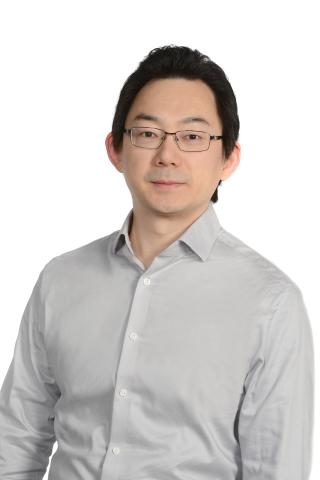
- Postdoctoral Associate in Radiology
Yun Shang, Ph.D., received his doctorate, M.P.H., and M.Sc. from Columbia University; another M.Sc. from East China Normal University; and his B.E. from Shanghai University of Science and Technology.
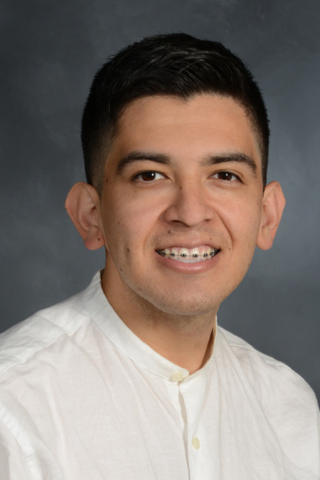
- Visiting Graduate Student in Radiology
Rigoberto Vazquez Jr. earned his B.Sc. in Mechanical Engineering from California State University in 2019 and his M.Sc. in Nuclear Engineering & Radiological Science—with emphasis in Materials and Medical Physics—from the University of Michigan in 2021. Vazquez is now pursuing his Ph.D. in the biomedical engineering program administered by the Weill Cornell Graduate School of Medical Sciences and Cornell University Graduate School. His current research interest focuses on the design and development of MRI RF coils for nonconventional anatomical regions using conductive materials and a variety of 3D-printing techniques.
Alexey V. Dimov Laboratory

- Assistant Professor of Biomedical Engineering in Radiology
Alexey Dimov received his undergraduate degree in physics from the N.I. Lobachevsky State University of Nizhny Novgorod (UNN), Radiophysics Department, and his doctorate from the Meinig School of Biomedical Engineering at Cornell University. After a post-doc at the University of Chicago, he is back at Cornell where his research is focused on quantitative separation of magnetic susceptibility sources, and abdominal quantitative susceptibility mapping (QSM) with a focus on the liver and kidneys. Outside of the lab, he is an amateur very high frequency/ultra high frequency (VHF/UHF) radio operator (emergency services radio traffic monitoring, ADS-B flight tracking, weather satellite APT).
Jonathan Dyke Laboratory
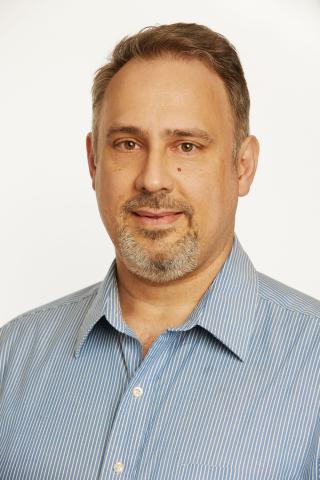
- Professor of Physics Research in Radiology
Jonathan Dyke graduated from the University of Tennessee in 1997 with a Ph.D. in Engineering. He served as a postdoctoral fellow (medical physics) at Memorial Sloan Kettering Cancer Center from 1998 to 2001. He was an assistant professor of physics (radiology) at Weill Cornell Medicine from 2001 until 2018, when he became an associate professor of physics (radiology).
Edward K. Fung Laboratory
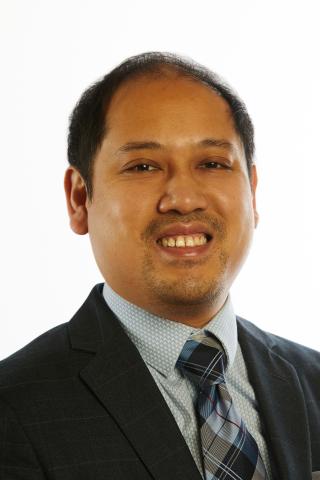
- Assistant Professor of Medical Physics in Radiology
Edward K. Fung, Ph.D., is a Weill Cornell Medicine assistant professor of medical physics in radiology.
Gene Kim Laboratory
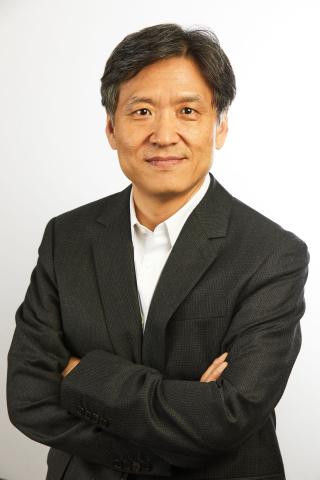
- Professor of Biomedical Engineering in Radiology
Dr. Gene Kim is a professor of biomedical engineering in radiology at Weill Cornell Medicine. He received his Ph.D. in biomedical engineering from the University of Southern California and completed his postdoctoral fellowship in cancer imaging at the University of Pennsylvania. His research focuses on the development of quantitative dynamic contrast-enhanced and diffusion magnetic resonance imaging methods for early detection of cancer and assessment of treatment response, particularly in breast cancer and head and neck cancer. Dr. Kim’s laboratory has been funded by grants from the National Institutes of Health.

- Postdoctoral Associate in Radiology
Thomas Ruan received his B.A. from Swarthmore College in 2016, majoring in chemistry and philosophy, and his Ph.D. from Weill Cornell Graduate School in 2025. Thomas conducted his doctoral thesis research at Memorial Sloan Kettering Cancer Center on the usage of hyperpolarized pyruvate to image metabolism in prostate cancer. He is currently working on developing applications of diffusion-weighted MRI in a variety of contexts, including quantifying muscular pain and tumoral response to immunotherapy.

- Research Technician II
Arianna Brenes grew up in Laguna Beach, California, and earned her B.Sc. in Biomedical Engineering from the University of Iowa (2021) and her M.Sc. in Medical Engineering with an emphasis in image and data processing from FAU Erlangen, Germany (2024). She completed her master’s thesis in DCE-MRI at Weill Cornell Medicine in collaboration with FAU. She is currently a Research Associate working in DCE-MRI and Diffusion MRI.
Ilhami Kovanlikaya Laboratory
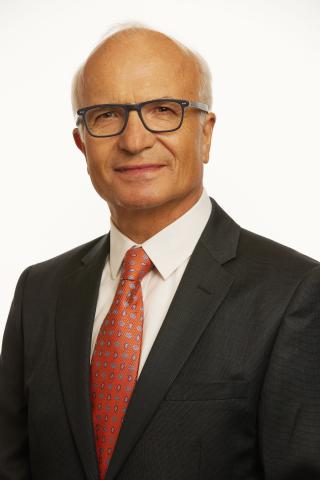
- Associate Professor of Research in Radiology
Dr. Kovanlikaya graduated from Hacettepe University, Medical School, Ankara, Turkey (1978), and completed his radiology residency (1982) at the same institution. During his tenure as an attending radiologist in the Department of Radiology at Dokuz Eylul University, Izmir, Turkey, he was appointed Dean of the Medical School in 1999. He also served as professor and chair of the department of radiology, at Yeditepe University, Istanbul, between 2004 to 2007. He joined the department of adiology at Weill Cornell Medicine in 2007.
Mark Mikkelsen Laboratory
- Assistant Professor of Neuroimaging in Radiology
Mark Mikkelsen, Ph.D., is an assistant professor of neuroimaging at Weill Cornell Medicine. He was awarded his doctorate in neuroimaging at the Cardiff University Brain Research Imaging Centre (CUBRIC). He specializes in magnetic resonance spectroscopy (MRS) research, developing novel methodologies and applying them to neuropsychiatric and neurological disorders and diseases. In particular, he focuses on advanced methods for the noninvasive measurement of low-concentration metabolites in the living human brain, such as the inhibitory neurotransmitter gamma-aminobutyric acid (GABA) and the antioxidant glutathione (GSH). Dr. Mikkelsen also develops open-source software and data processing tools for analyzing MRS data.
Thanh D. Nguyen Laboratory
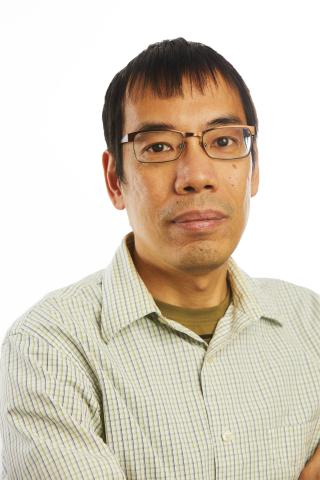
- Associate Professor of Physics Research in Radiology
Thanh D. Nguyen, Ph.D., is an associate professor of physics in radiology with the Weill Cornell Medicine Magnetic Resonance Imaging Research Institute.
Dikoma C. Shungu Laboratory
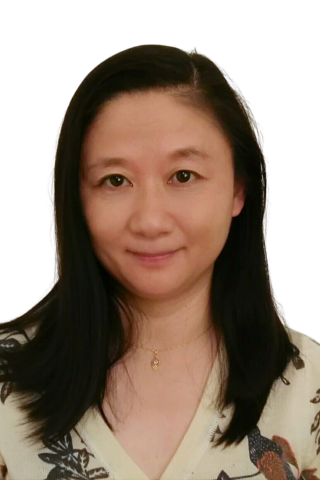
- Senior Staff Associate in Radiology
Xiangling Mao, M.S., has worked in magnetic resonance research for 25 years. After earning her undergraduate degree in solid-state physics and a master’s degree in computer science from Huazhong University of Science and Technology in Wuhan, China, she completed a three-year research fellowship at the Max Planck Institute for Biophysical Chemistry in Göttingen, Germany. There, she developed computer software for processing, analyzing, and displaying magnetic resonance neuroimaging data under Prof. Jens Frahm, a world-renowned expert in clinical MRI applications.
On Professor Frahm's recommendation, Mao was recruited by Dikoma C. Shungu, Ph.D., at Columbia University; she then joined Dr. Shungu at Weill Cornell Medicine's Laboratory for Advanced MR Spectroscopy Research (LASR), where she continues to work. Under Dr. Shungu's supervision, Mao developed a highly versatile software platform for automatically processing, curve-fitting, and displaying clinical proton magnetic resonance spectroscopic imaging data. This software has become an invaluable tool for our research projects.
At WCM, Mao's primary responsibilities include implementing MR scanning protocols, collecting and analyzing data, and facilitating several major clinical neuroimaging research projects. These projects focus on a range of conditions, including brain tumors, amyotrophic lateral sclerosis, schizophrenia, pediatric disorders, mitochondrial diseases, major depressive disorder, and myalgic encephalomyelitis/chronic fatigue syndrome.
These studies involve acquiring and managing large volumes of MR imaging, spectroscopy, and spectroscopic imaging data from over 1,000 patients and volunteers. Effectively handling such data requires expertise in:
- Medical imaging data processing,
- Computer operating systems and environments,
- Multiple programming languages, and
- Quantitative or computational sciences (e.g., physics, computer science, or biomedical engineering).
With this combination of skills, Mao not only excels in data processing but also develops and implements innovative solutions to address new quantitative challenges as they arise during research projects.
Pascal Spincemaille Laboratory

- Associate Professor of Physics Research in Radiology
Dr. Pascal Spincemaille is an associate professor of physics research in radiology at Weill Cornell Medicine. He received his master’s degree, and his postdoctoral degree, in physics from the Katholieke Universteit Leuven, Belgium. He has worked on the development of free-breathing cardiac imaging, including coronary artery and delayed enhancement imaging; the first reported vastly accelerated (below 1s temporal frame rate) 3D spiral dynamic contrast enhanced imaging; and various fundamental contributions to quantitative susceptibility mapping in the brain, liver and heart.
Yi Wang Laboratory
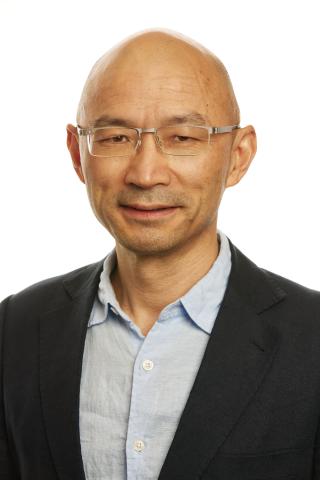
- Faculty Distinguished Professor in Radiology
- Professor of Physics in Radiology
- MRIRI Director
Yi Wang, Ph.D., holds the Faculty Distinguished Professorship in the Department of Radiology, and is a tenured Professor of Physics in Radiology, Director of the Magnetic Resonance Imaging (MRI) Research Institute at Weill Cornell Medicine (WCM), and Professor of Biomedical Engineering at Cornell University. He studied theoretical physics and switched to applying physics to medicine. Professor Wang has invented multiple MRI technologies of great importance to the clinical and scientific communities.
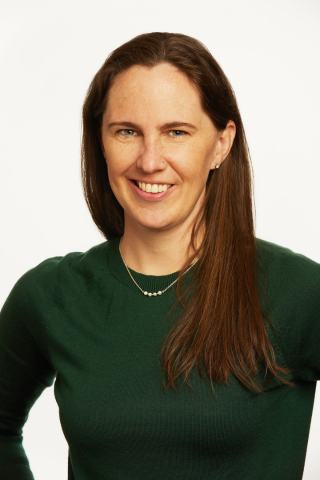
- Assistant Professor of Cell Biology in Radiology
- Director of Research Strategy in Radiology
Kelly Gillen's research interests include using imaging and histological techniques to understand the contribution of iron overload to neurodegenerative diseases such as Parkinson’s and Alzheimer’s diseases. In parallel, she works closely with the Department of Radiology leadership team on research strategy, operations, and administration.

- Research Program Manager in Radiology
Carly Skudin is the Research Program Manager of the MRI Research Institute. She works closely with Dr. Yi Wang and other MRIRI investigators to monitor ongoing research projects; oversee statistical and data management operations; provide leadership during the research grant process; execute grant writing, scientific publication, and regulatory reviews; and manage the appointments of the lab's faculty and students. Skudin graduated from Colgate University with a degree in neuroscience.
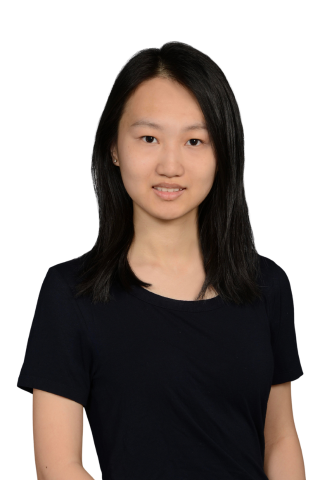
- Graduate Student in Radiology
Angela Deng received her B.S. in electrical engineering from the University of Michigan and is now a Ph.D. student in Electrical and Computer Engineering at Cornell University. Her current research interests include quantitative susceptibility mapping (QSM) and deep learning.
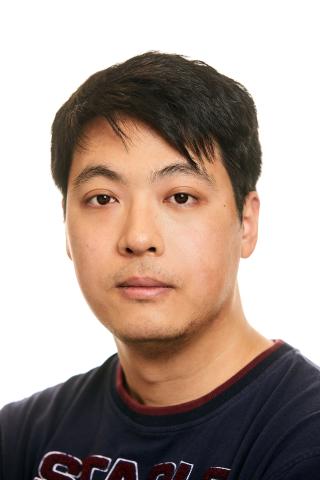
- Visiting Graduate Assistant in Radiology
Renjiu Hu received his bachelor's degree in applied physics from the University of Science and Technology of China. He is currently a doctoral student in Mechanical and Aerospace Engineering at Cornell University. His research interests include perfusion and permeability quantification of arterial spin labeling (ASL) images and deep learning.
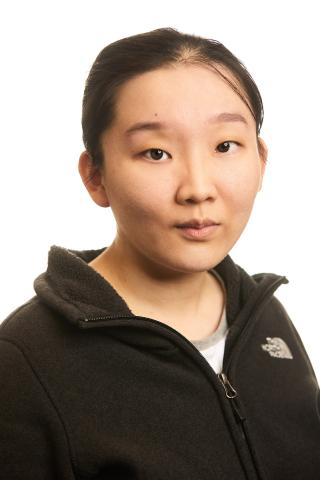
- Visiting Graduate Student in Radiology
Chao Li is a third-year doctoral student in the Department of Applied and Engineering Physics, and a visiting graduate student at Weill Cornell Medicine. She received her bachelor of science degree from Australian National University, where she majored in math and physics. Her doctoral project is focusing on image reconstruction and motion artifact correction in magnetic resonance imaging (MRI) using deep learning and classical methods. In her spare time, she enjoys playing mobile games and watching movies.

- Visiting Graduate Student in Radiology
Alexandra Roberts is an electrical engineering doctoral student from Bradenton, Florida. Her current work includes shadow reduction in quantitative susceptibility mapping and super-resolution of susceptibility-weighted imaging. Prior to joining the Wang Lab, Alexandra worked as a machine vision engineer at Benz Research & Development. She completed a master’s degree in engineering from the University of Florida, where her research involved 3D x-ray reconstruction of printed circuit boards with the Florida Institute for Cybersecurity Lab. Alexandra earned a B.S. at West Virginia Wesleyan College, where her research focused on systems genomics applications. Outside of the lab, Alexandra enjoys playing guitar, running and rock climbing.
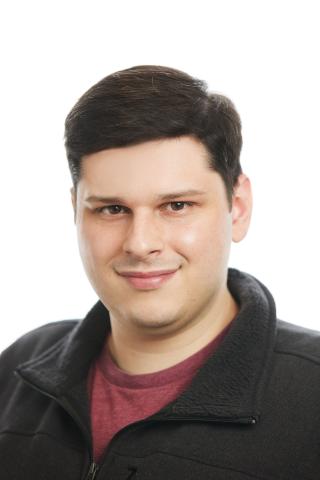
- Visiting Graduate Student in Radiology
Dominick grew up just a 45-minute train ride away from New York City on the South Shore of Long Island. He studied bioengineering (even taking some extra physics classes for fun) and conducted research on endothelial cell migration as an undergraduate at Hofstra University. At Cornell, he is a doctoral student studying biomedical engineering in the Wang Lab. His project focuses on further developing techniques for Quantitative Transport Mapping (QTM) and applying QTM to clinical images. In his free time, Dom enjoys bowling, collecting and listening to records, and reading physics texts.
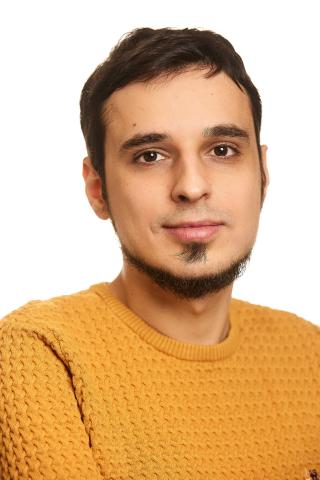
- Visiting Graduate Student in Radiology
Mert Sisman is from Ankara, Turkey, where he also received both his BSc. and MSc. degrees in Electrical and Electronics Engineering. He is now a Ph.D. student in the Electrical and Computer Engineering department at Cornell. Always interested in medical research, and a huge fan of math, he found his way into MRI research. He is currently interested in developing novel algorithms to improve quantitative imaging modalities. You can always find him playing video games unless he is doing a movie marathon

- Visiting Graduate Student in Radiology
Ben Weppner is from Buffalo, New York, where he studied biomedical engineering and researched measuring perfusion in brain MRI scans at the University at Buffalo. Weppner is now a Cornell University Ph.D. student in biomedical engineering, where his research focuses on quantitative transport mapping (QTM).

- Postdoctoral Associate in Radiology
Qihao Zhang received his bachelor's degree from the biomedical engineering department at Tsinghua University, China. He is currently a doctoral student in biomedical engineering at Cornell University. His research interests include perfusion and permeability quantification form-contrast-enhanced magnetic resonance (MR) images and arterial spin labeling (ASL) sequence design.
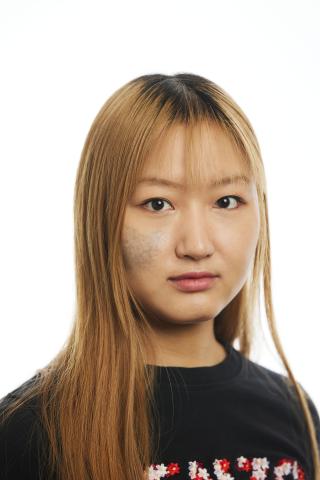
- Visiting Graduate Student in Radiology
Hangwei Zhuang is from Jiangsu, China. She studied math and biomedical engineering as an undergraduate at the College of William and Mary and Columbia University. Her research project focuses on quantitative susceptibility mapping (QSM).
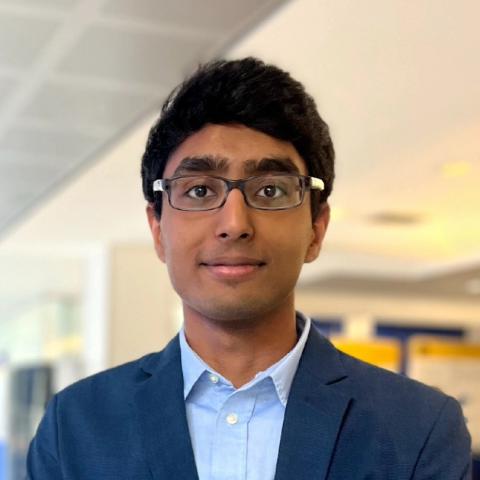
- Visiting Graduate Student in Radiology
Maneesh John received his bachelor's and master's degrees in Electrical & Computer Engineering from the University of Iowa. He is currently a doctoral student in Electrical & Computer Engineering at Cornell. His research interests include deep learning, medical imaging, and inverse problems.

- Visiting Graduate Student in Radiology
Martin, from Bratislava, Slovakia, holds a background in mathematics and science from the University of Glasgow in Scotland. His research focuses on low-level elements of image acquisition and reconstruction that determine final image quality, with current attention directed toward the structure and limitations of parallel imaging algorithms.
Zungho Wesley Zun Laboratory
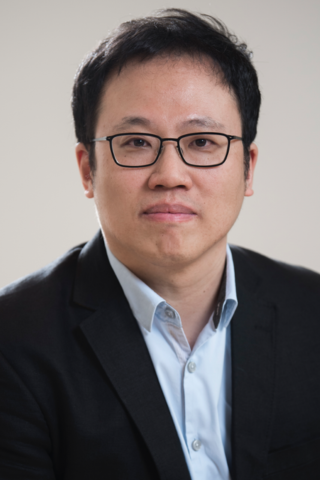
- Assistant Professor of Electrical Engineering in Radiology
Dr. Zun is an assistant professor of electrical engineering in radiology. He received his B.S. from Korea University in 1998, and his M.S. and Ph.D. from the University of Southern California in 2004 and 2010 respectively, all three degrees in electrical engineering. Dr. Zun’s research focuses on development of non-invasive magnetic resonance imaging (MRI) methods that offer early and reliable biomarkers of impaired perfusion and oxygenation in the context of fetal and neonatal imaging. Ultimate goal: translating these methods to clinical practice.

